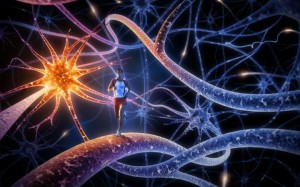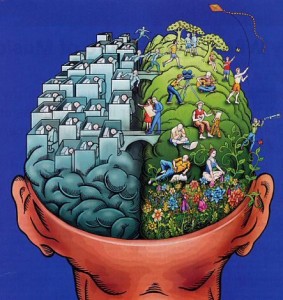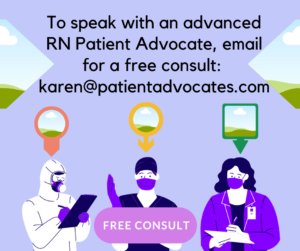Teaching your brain new tricks! Keep your cognitive ability alive and well. What is this? Neuroplasticity.
 How would you like to be better at problem solving, learning a new language, increasing your ability to focus, regaining body function due to a stroke, or recapturing some lost brain function from a brain trauma such as an auto accident? Your brain is capable of all of these things. The process is called neuroplasticity.
How would you like to be better at problem solving, learning a new language, increasing your ability to focus, regaining body function due to a stroke, or recapturing some lost brain function from a brain trauma such as an auto accident? Your brain is capable of all of these things. The process is called neuroplasticity.
Neuroplasticity refers to your brain’s potential to reorganize to better meet current needs – to adapt – through creating new pathways that allow it to adapt. In effect, to rewire your brain.
 How does this work? When you learn a new skill, engage in activities that cause you to focus and concentrate, your brain adapts by creating new connections to help you sharpen your new skill – this is the rewiring.
How does this work? When you learn a new skill, engage in activities that cause you to focus and concentrate, your brain adapts by creating new connections to help you sharpen your new skill – this is the rewiring.
The more you focus and practice something the better you become at the new skill that you are learning or tackling an obstacle you are trying to overcome. By doing this, new neural connections are created in the brain as synapses that don’t usually fire together start to connect to support your activity. You are actually rewiring your brain to function more effectively in the manner you most need at the time.
Let’s look more closely: It was the prevailing wisdom until recently that our brains could develop new pathways of learning for a relatively short time – dropping off sharply after the age of 20 and becoming permanently fixed by the age of 40. However, studies such as MRIs and PET scans are proving that new nerve cells and new neural pathways are generated throughout our lives! Even the elderly or those suffering trauma to the brain are capable of creating measurable changes in brain organization through concerted focus on a defect area.

There are physicians who have been educated in this leading edge work. RN Patient Advocates can teach you more and guide you to these practitioners.
Want to create new new pathways for yourself? Learn more here . . .
 How would you like to be better at problem solving, learning a new language, increasing your ability to focus, regaining body function due to a stroke, or recapturing some lost brain function from a brain trauma such as an auto accident? Your brain is capable of all of these things. The process is called neuroplasticity.
How would you like to be better at problem solving, learning a new language, increasing your ability to focus, regaining body function due to a stroke, or recapturing some lost brain function from a brain trauma such as an auto accident? Your brain is capable of all of these things. The process is called neuroplasticity.
Neuroplasticity refers to your brain’s potential to reorganize to better meet current needs – to adapt – through creating new pathways that allow it to adapt. In effect, to rewire your brain.
 How does this work? When you learn a new skill, engage in activities that cause you to focus and concentrate, your brain adapts by creating new connections to help you sharpen your new skill – this is the rewiring.
How does this work? When you learn a new skill, engage in activities that cause you to focus and concentrate, your brain adapts by creating new connections to help you sharpen your new skill – this is the rewiring.
The more you focus and practice something the better you become at the new skill that you are learning or tackling an obstacle you are trying to overcome. By doing this, new neural connections are created in the brain as synapses that don’t usually fire together start to connect to support your activity. You are actually rewiring your brain to function more effectively in the manner you most need at the time.
Let’s look more closely: It was the prevailing wisdom until recently that our brains could develop new pathways of learning for a relatively short time – dropping off sharply after the age of 20 and becoming permanently fixed by the age of 40. However, studies such as MRIs and PET scans are proving that new nerve cells and new neural pathways are generated throughout our lives! Even the elderly or those suffering trauma to the brain are capable of creating measurable changes in brain organization through concerted focus on a defect area.

There are physicians who have been educated in this leading edge work. RN Patient Advocates can teach you more and guide you to these practitioners.
Want to create new new pathways for yourself? Learn more here . . .





Recent Comments